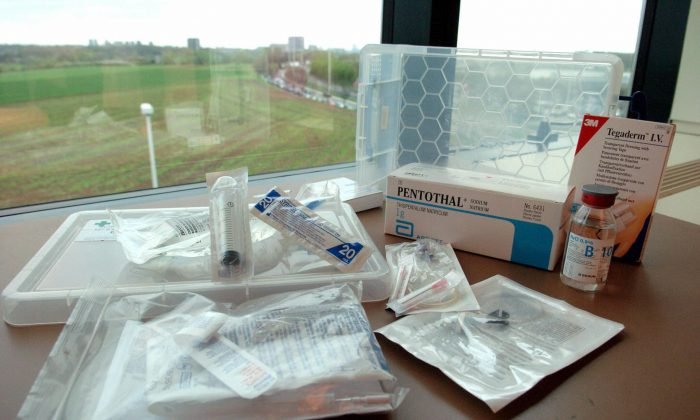Husband Fatally Affected by Consuming Wife’s Euthanasia Medication
The incident is believed to be the first time VAD drugs have been misused in Australia.
Voluntary assisted dying (VAD) laws will be examined after a man used his wife’s euthanasia drugs after she died in hospital.
The older man was not eligible for VAD, but he died after self-ingesting the oral substance prescribed to his VAD-eligible wife who passed away before she had the chance to take it.
The matter was referred to the coroner and Queensland Health is finalising the investigation.
In Queensland, VAD patients must return their drugs after 14 days if not used.
However, Health, Mental Health, and Ambulance Services Minister Shannon Fentiman said the Queensland government would “absolutely” look to tighten VAD regulations.
“Upon the completion of the investigation that is underway, about the unauthorised use of voluntary assisted dying medication, we will look at absolutely whether we need to strengthen the legislation about that 14-day turnaround for medication to be returned, which I suspect we will do,” she told reporters on Sept. 25.
Ms. Fentiman said she would await the outcome of the investigation first and expects the coroner to have some recommendations.
“Despite that one incident, I want to say that we have seen a record number of Queenslanders take part very safely in our voluntary assisted dying scheme,” she said.
The incident, believed to be the first time in Australia any VAD system had been misused, was mentioned in the first annual report of the state’s Voluntary Assisted Dying Review Board released on Sept. 26.
Queensland Lenient VAD Laws Almost Led to 600 Deaths
More Queenslanders undertook the VAD scheme than any other state, according to the report.
However, Ms. Fentiman said that although legislation may need to be “tightened”, she added, “I’m really proud that our government has put in place this system.”
Since VAD became legal in Queensland in January, about 15 months after the legislation passed the state parliament, 591 people commenced the VAD process, and 245 terminally ill people died.
The state’s VAD eligibility is, however, broader than other jurisdictions. Queenslanders can access the scheme if they have an illness or medical condition expected to cause death within 12 months.
Other states have six-month eligibility criteria, but Victoria is an exception, where people must have an illness or medical condition expected to cause death within six months unless they have a neurodegenerative disease.
The report revealed that 78 percent of people in Queensland who accessed VAD had cancer; other diagnoses were end-stage renal and liver disease and neurodegenerative and cardiovascular diseases.
Further, the state had nearly 50 percent (49) of VAD patients living outside metropolitan areas and 318 authorised euthanasia practitioners composed of doctors and nurses.
About 49 percent of authorised practitioners were in South East Queensland, while others were based in larger regional cities such as Toowoomba, Townsville, Mackay, and Cairns.
Ms. Fentiman said the report proved VAD was a “safe, accessible, and compassionate option for Queenslanders dying and suffering.”
However, Associate Prof. Helen Irving made five recommendations to the scheme after the state’s first six months of VAD operation including “adequate, ongoing funding and resources” to support those accessing VAD and private and public health practitioners. She said the funding would allow continuous review of VAD working practice.
Further recommendations were amendments to the Commonwealth Criminal Code to permit doctors to use telehealth for VAD consultations. The current Criminal Code prohibits the electronic transmission of prescriptions for a substance under the scheme.
The report said that because of this, “practitioners or people accessing voluntary assisted dying are required to travel, at times long distances, to be able to access the service without the risk of breaching the commonwealth criminal code.”
Dying with Dignity Queensland President Sheila Sim backed the recommendation and said the biggest problem with the state’s VAD laws was more people should be aware of them.
Assisted Dying Advocates Skew VAD as ‘Good Death’
However, Christopher Dawson Centre for Cultural Studies in Tasmania Director David Daintree said mental health impaired minds
Source link






